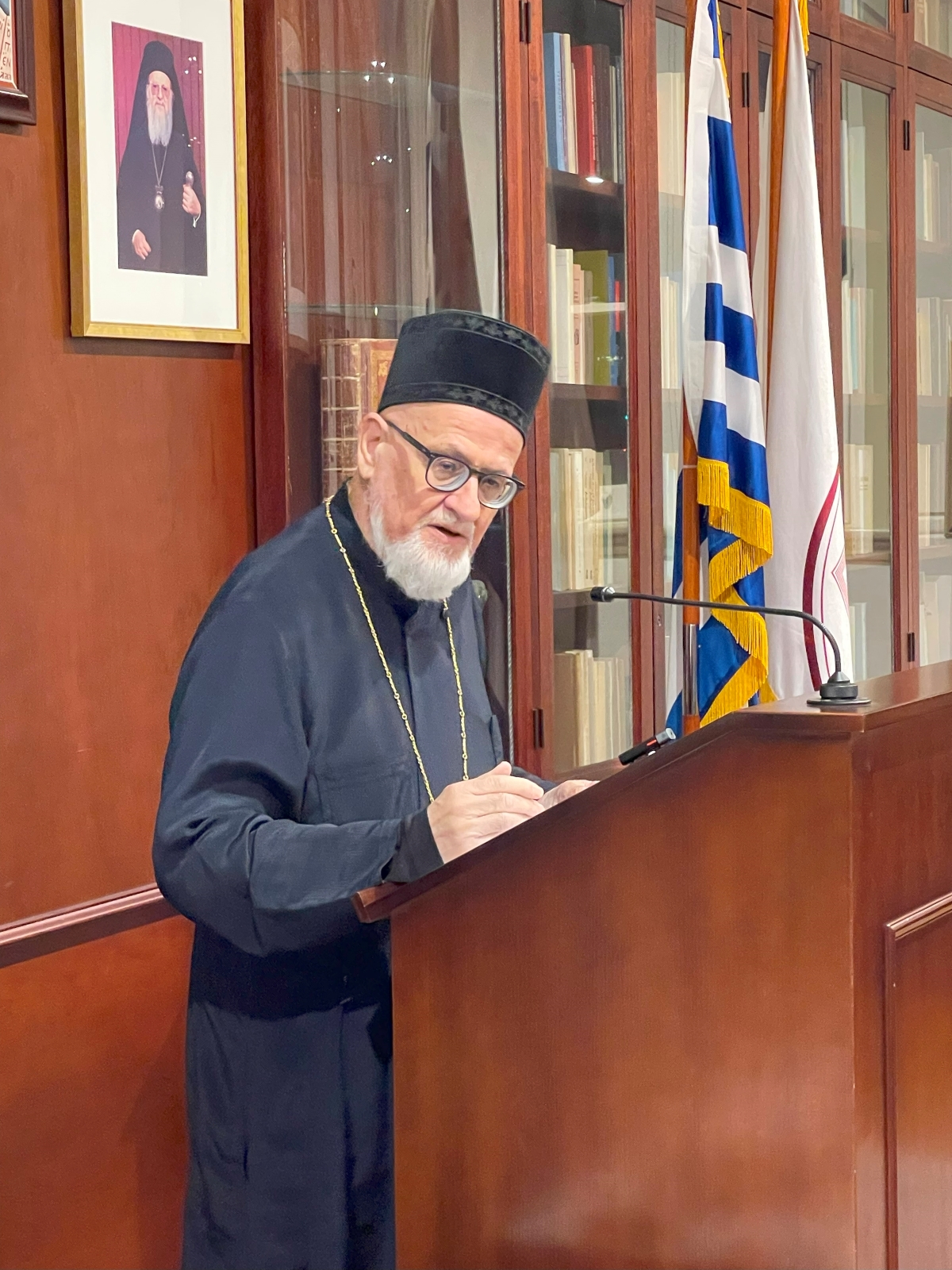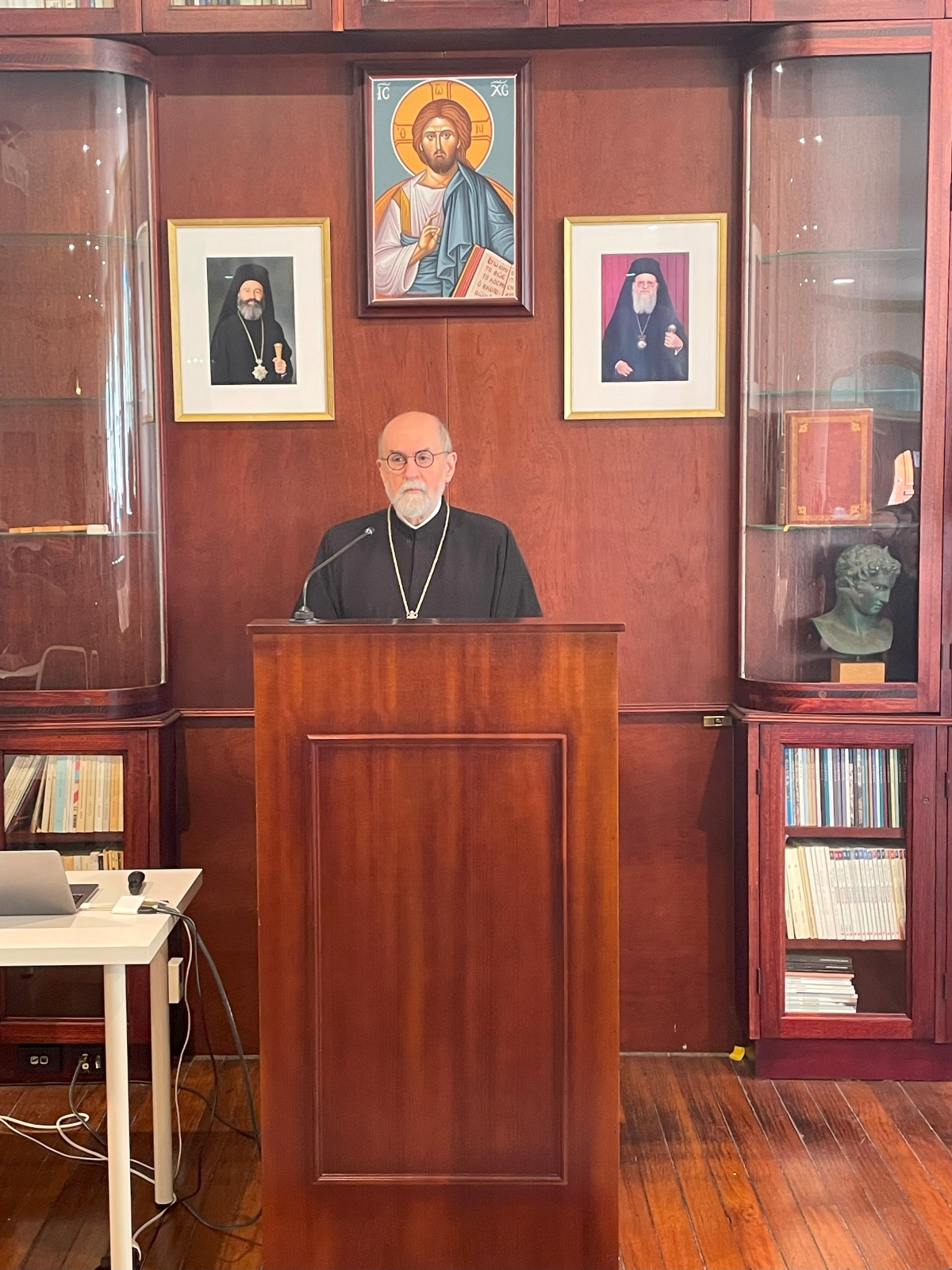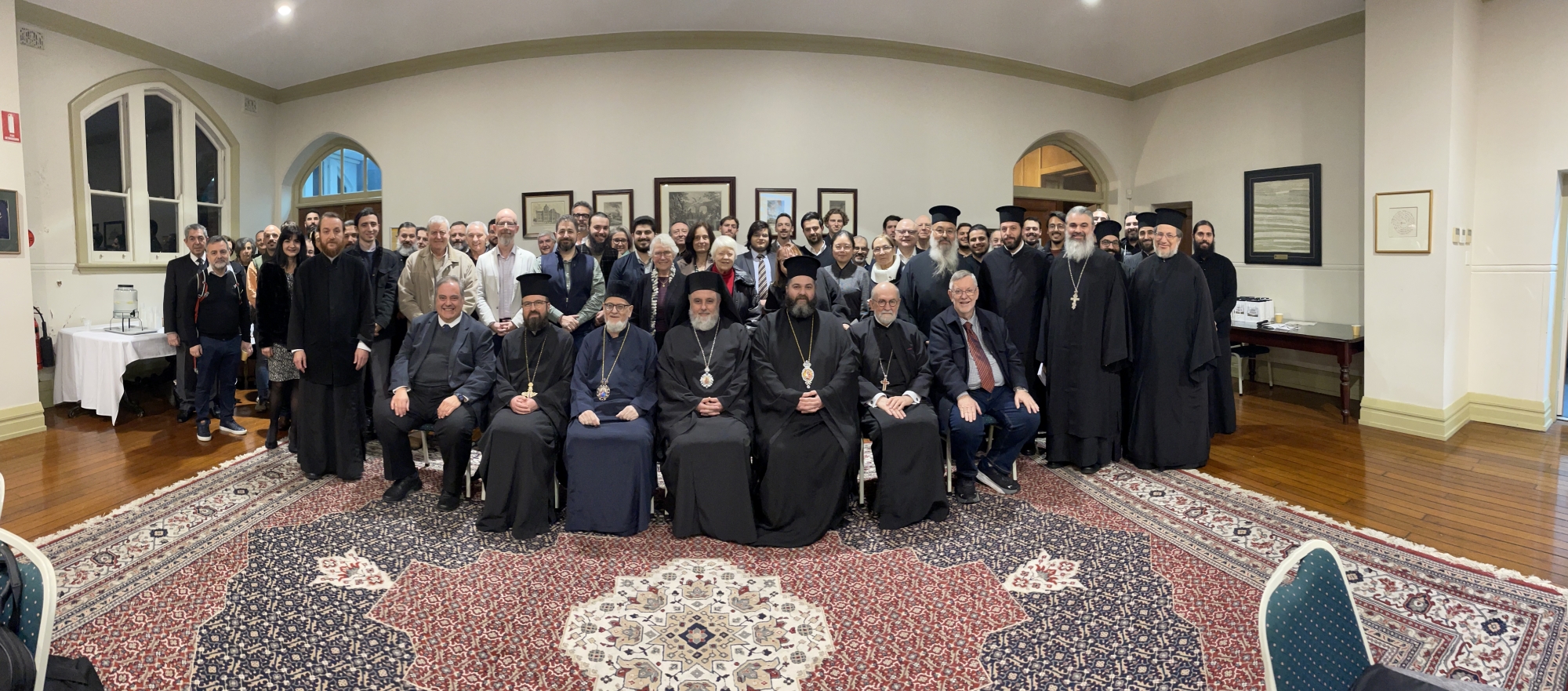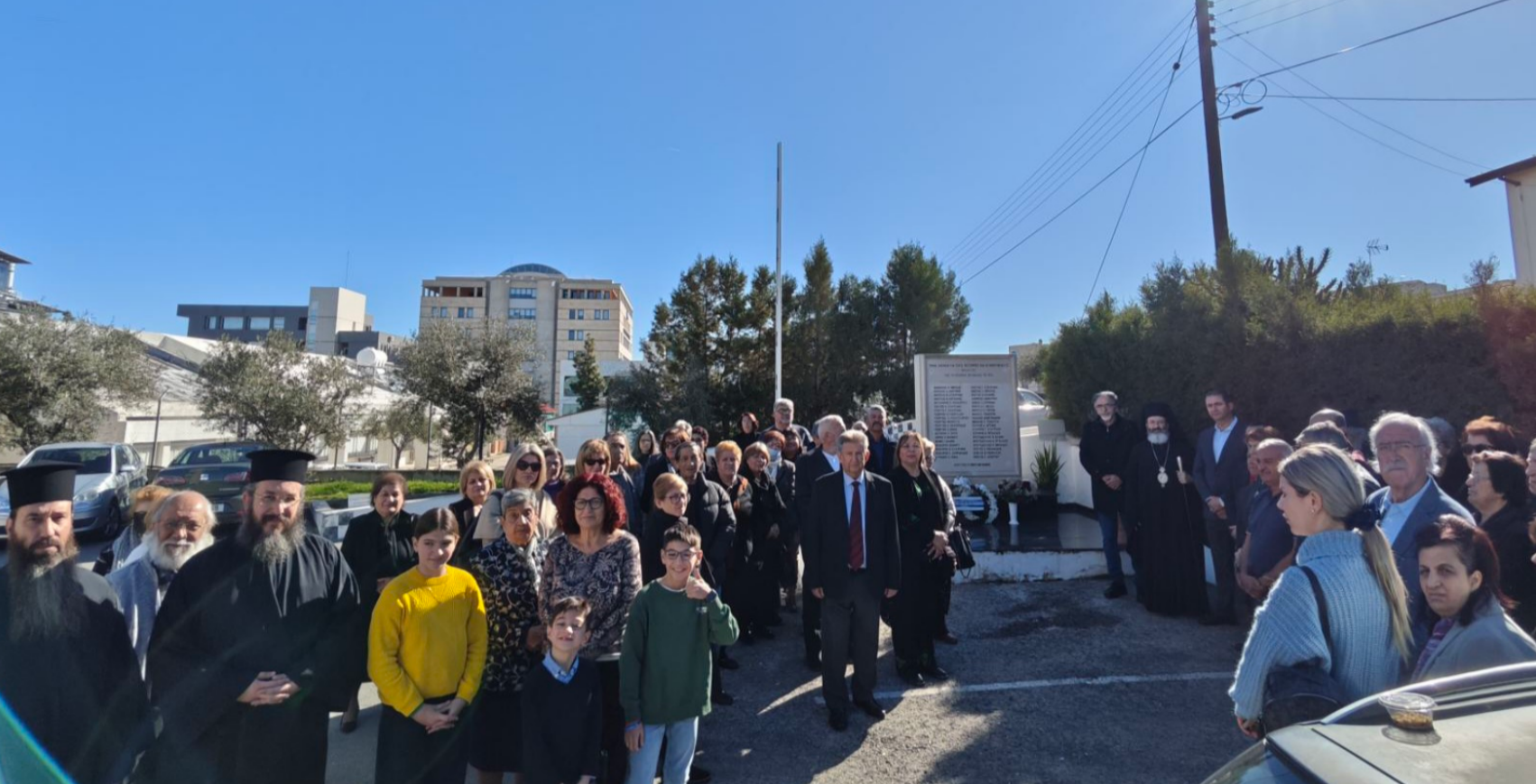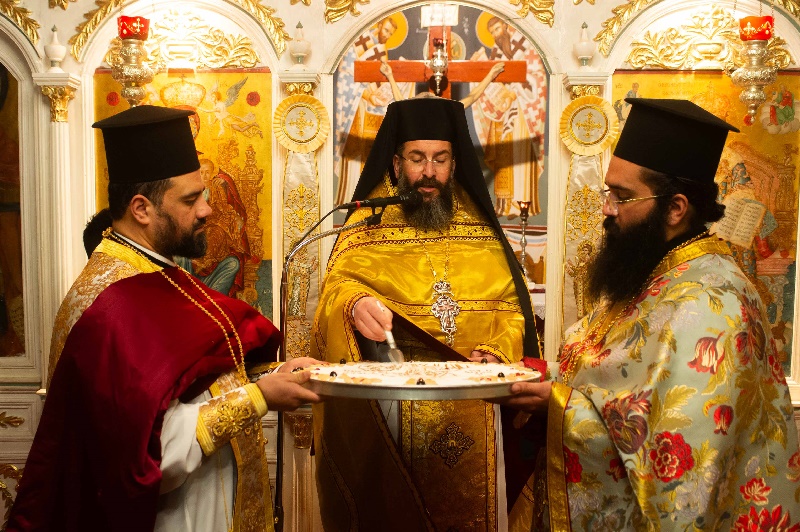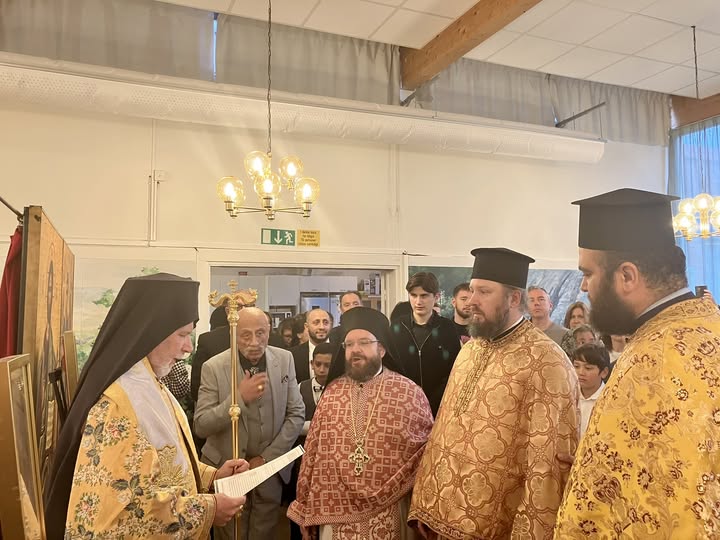St Andrew’s Theological College 4th Theology Symposium 2023
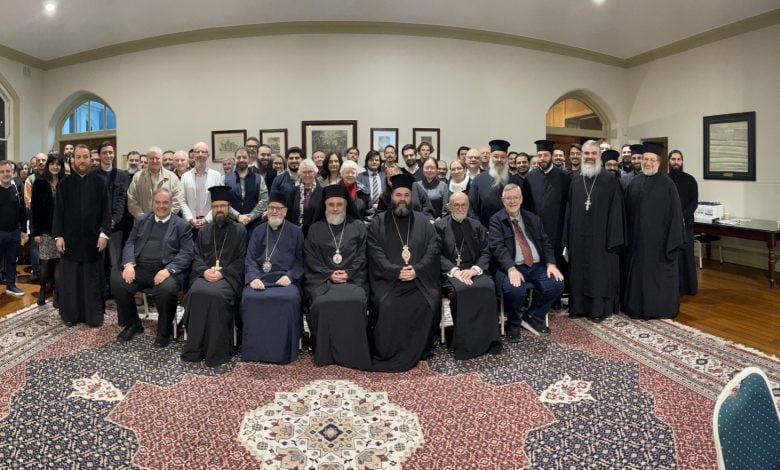

With the blessing of His Eminence Archbishop Makarios of Australia, College President and Dean, St Andrew’s Theological College held its 4th Theology Symposium on 18th-19th August 2023. The theme of this year’s Symposium was: ‘For the Life of the World: the Church’s Missional Identity and Witness Today’, and the two keynote speakers were, His Grace Bishop Themistocles of Nicopolis (Head of the Orthodox Mission Centre in Sierra Leone) and the Very Revd Archpriest Professor Chad Hatfield (President of St Vladimir’s Orthodox Theological Seminary in New York), both distinguished in the theological discipline of missiology.
In relation to theme of the symposium, it was noted that mission is indispensable for the life of the Church as indicated most importantly in Christ’s Great Commission, “Go therefore and make disciples of all nations baptizing them in the name of the Father and of the Son and of the Holy Spirit and teaching them to obey everything that I have commanded you. And remember, I am with you always, to the end of the age” (Mt 28:19-20). Other important indications clearly suggesting the importance of mission was shown to be the liturgical injunction found at the end of the Divine Liturgy of St John Chrysostom: “Go forth in peace” which enjoins the faithful to go and give witness to all the heavenly gifts of Christ’s kingdom that they have experienced within the context of the Liturgy. Thirdly, it was noted that the Nicene-Constantinopolitan Creed specifically refers to the apostolic nature of the Church which is an explicit reference to the vital role of the apostles as those sent out into the world with a specific mission to evangelise the nations.
Amongst the one hundred strong participants present in the Hall of the College, together with a number who were following the symposium’s proceedings via ZOOM, the following dignitaries were also present: His Eminence Metropolitan Basilios from the Antiochian Orthodox Church (was present only on the Saturday); His Grace Bishop Iakovos of Miletoupolis; His Grace Bishop Bartholomew of Charioupolis; the Very Revd Fr Christophoros Krikelis, Chancellor and Archimandrite of the Ecumenical Throne; Mr Peter King, President of the Sydney College of Divinity; Prof. Jim Harrison, Distinguished Research Professor of the Sydney College of Divinity and Co-Convenor together with A/Prof. Philip Kariatlis, Sub-Dean; Prof. Diane Speed, Professor Emerita and former Dean of the Sydney College of Divinity. Masters of Ceremonies over the two days were the Very Revd Anastasios Bozikis, the College’s Lecturer in Church History and Dr Andrew Mellas who teaches units in Church History and Liturgics at St Andrew’s.
Whilst His Eminence Archbishop Makarios was not able to be there in person, due to overseas commitments, he was represented by His Grace Bishop Iakovos of Miletoupolis, who read the Dean’s Address. In his address, His Eminence beautifully summed up not only the way in which mission ought to be carried out, but also its ultimate purpose. Amongst other things, His Eminence noted: “The annual St Andrew’s Symposia constitute a highlight of our academic year… Quite fittingly, the 4th Theology Symposium this year is dedicated to the Christian imperative of mission… I would like to raise two questions by way of initiating the discussion and interchange that will take place over the next few days. These include: firstly, in what way ought our missionary activities be undertaken, and secondly, towards what end?”


Turning his attention to briefly answer these two questions, His Eminence noted: “In relation to the first question, the words of St Paul, in his letter to the Corinthians, immediately come to mind: “faith, hope and love” (1Cor 13:13)… A commitment to serve with love and in a spirit of charity; more specifically, a belief and hope that love, as manifested both in the scandal of God-become-human and in our own personal self-sacrifice for the sake of others, is precisely what ought to inform our understanding of mission.” Specifically on the second question, the Archbishop said: “The second question which is of a teleological type, requires that we fully appreciate that the ultimate purpose of all missionary activity is totally incongruous with proselytism of any type. On the contrary, as indicated by our Lord’s key teaching, the Church’s missional mandate relates to the foundation and manifestation of God’s kingdom here on earth, and His invitation to this eternal reality.” His Eminence had met with Fr Chad several days earlier in his office and together they discussed ways in which St Vladimir’s and St Andrew’s can better collaborate together into the future which will mutually benefit both institutions.
Following the Dean’s address, the first keynote speaker, His Grace Bishop Themistocles of Nicopolis delivered his keynote address entitled: “The Challenges and Character of Orthodox Mission in West Africa.” Amongst the areas developed in the address were the following: (a) Jesus’ Great Commission as an ecclesiastical imperative and Modern Orthodoxy’s response; (b) donor fatigue and the need for economic self-reliance as a symbol and awakening consciousness of both African Societal and African Orthodoxy; (c) West African religious anthropology, culture and Orthodox Byzantine worship in a period of massive Pentecostal expansionism; (d) magic (Juju), child sacrifice, child trafficking, baby factories, and the challenge of child protection in West Africa; (e) Orthodox mission in West and Sub-Saharan Africa amid geo-political tensions and reactions to neo-colonialism and accusations of white supremacism; (f) the challenge of pandemics (e.g. Ebola and other diseases such as Lassa Fever, Malaria, Tuberculosis), and the Missionary in West Africa; and (g) the way forward. Not only was the address engaging, relevant and highly appreciated, but it also gave striking insights to real-life experiences of a person who has been on the mission field for over two decades.
On the Saturday morning, Archpriest Professor Chad Hatfield delivered the second keynote address. The title of his paper: “Three Foundations for Building Modern Era Missiology” focused on three key figures who were foundational in the recovery of missiological principles leading to growth in interest and an addition to the curriculum in theological higher education. More specifically, the paper presented the missiological principles of St Herman of Alaska; an Anglican missiologist, Roland Allen; and finally, Archbishop Anastasios of Albania, a living example of a tried and proven effective example of missiology applied in a Third World Context. The presentation was well received and most importantly brought to light how all practicing Christians are called to give witness to Christ and his kingdom.
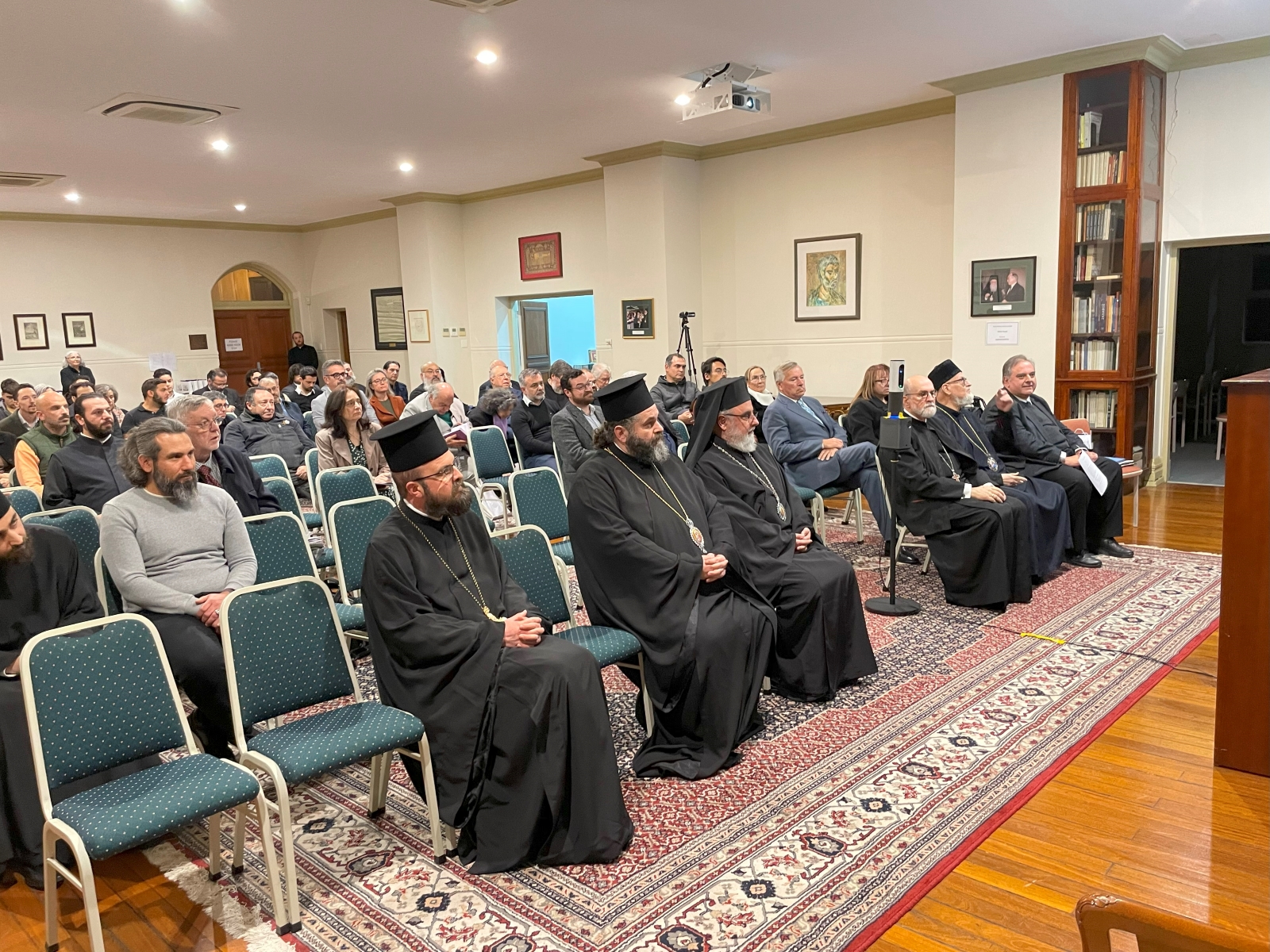

Together with the two keynotes speakers the Symposium hosted another nine papers; the names of the remaining presenters together with the title of their presentations were, in order of their presentations: A/Prof. Philip Kariatlis “The Mission of the Church as Anticipation and Realisation of God’s Eternal Kingdom”; Dr Lydia Gore-Jones : “The Orthodox Church and China”; A/Prof. Margaret Beirne “The Mission of the Churches in Today’s World”; Very Revd Father Anastasios Bozikis “Establishing ‘Christ’s Greece’: the Gospel of Pietism and the Re-conversion of a Nation”; Revd Prof. Gerard Kelly “Synodality: A Precondition for a New Missionary Energy”; Dr Vassilis Adrahtas “Indigenous Orthodoxy or Orthodox Indigeneity? Prospects and Problems of Mission Work amongst the People of the Dreaming”; Revd Dr Antonios Kaldas “The Pros and Cons of a Contemporary Orthodox Apologetic”; Dr Andrew Mellas “Sacred Music and the Mission of the Orthodox Church” and Revd Nemanja Mrdjenovic “Bogomoljci – a Missional Movement of the Orthodox Laity as a Blessing and a Challenge to the Church.” All papers provided a space for different scholars, not only from different academic affiliations but also denominational backgrounds and different fields of expertise to come together in order to reflect on the Church’s missional identity and imperative.
During the closing remarks, all participants were very much moved by Fr Chad’s most generous gesture in donating a hand-painted icon of St Herman of Alaska with a small portion of the saint’s relic to the Theological College. Ultimately, the symposium brought to the fore the importance of ‘listening and learning’ when entering new missiological contexts and highlighted that the true force of all mission understood from within a theological perspective is Christ’s proclamation of the abolition of death, the victory of the abundance of life and the establishment of God’s lasting and loving reign in his future kingdom, experienced by way of foretaste already in the present, something which was noted to be a uniquely characteristic feature of the Church’s mission.
More photos:
